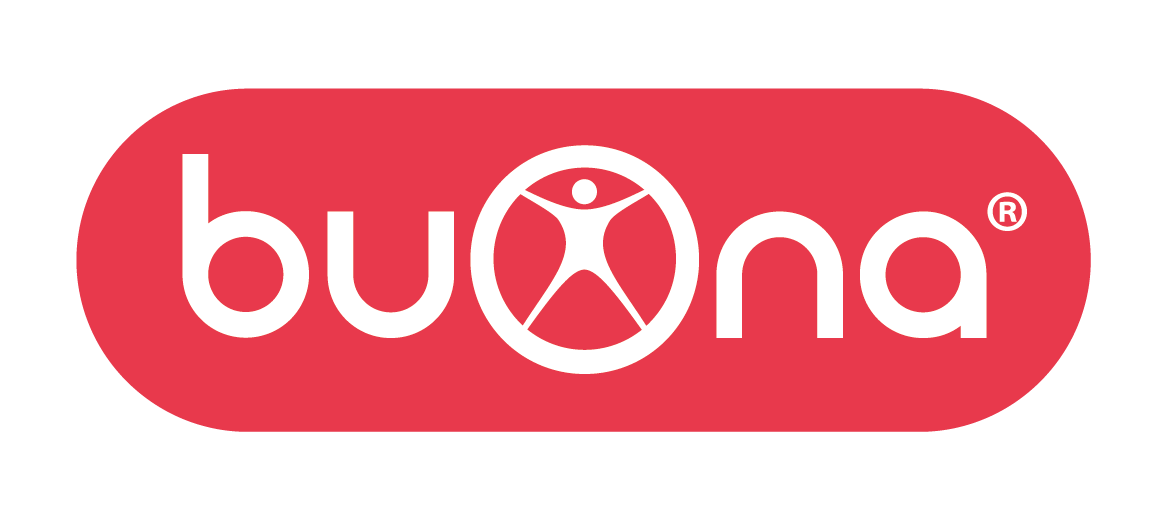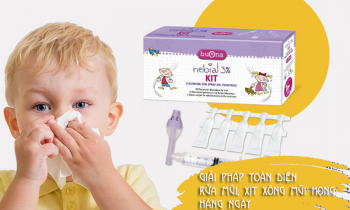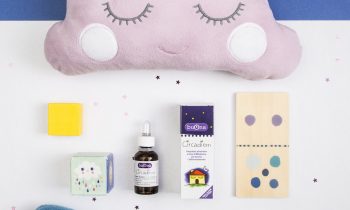
Hỏi Đáp cùng chuyên gia tư vấn BUONA
Hướng dẫn sử dụng chuyên mục hỏi đáp
Thông tin trong chuyên mục chỉ mang tính chất tham khảo, việc điều trị cần liên hệ với bác sỹ để có thông tin chính xác.
- Trước khi đặt câu hỏi mới, hãy sử dụng chức năng " Tìm câu hỏi" để tìm câu hỏi tương tự
- Sử dụng chức năng " Kiểu sắp xếp" để sắp xếp hiển thị câu hỏi theo thứ tự mong muốn
- Bấm vào nút " Đặt câu hỏi" để gửi câu hỏi.
- Việc bình luận, bình chọn sẽ giúp bạn tích điểm và được ưu tiên trả lời khi đặt câu hỏi
- Những câu hỏi, comment không phù hợp sẽ không được đăng hoặc bị xóa bởi ban Quản trị, nick comment có thể bị khiển trách hoặc xóa nick tùy theo mức độ nghiêm trọng của vi phạm.
Xin chào Buona,
Con trai tôi 2 tuổi, bé bị viêm mũi dị ứng từ bé. Hiện tại bé đã 2 tuổi nhưng thường xuyên bị viêm mũi dị ứng vào thời điểm giao mùa, hoặc mùa thu – đông. Bệnh ảnh hưởng nhiều đến khả năng hô hấp và phát triển của cháu. Vì vậy, tôi muốn sử dụng sản hẩm Nebial KIT để vệ sinh mũi cho bé hàng ngày, xin vui lòng tư vấn cách thức sử dụng?
3918 answers
‘Sugary food is a drug for me’: A growing number of children are addicted to ultraprocessed foods
[url=https://at-kraken21.at]кракен 19[/url]
Chicago native Jeffrey Odwazny says he has been addicted to ultraprocessed food since he was a child.
“I was driven to eat and eat and eat, and while I would overeat healthy food, what really got me were the candies, the cakes, the pies, the ice cream,” said the 54-year-old former warehouse supervisor
https://at-kraken20.at
kraken15
“I really gravitated towards the sugary ultraprocessed foods — it was like a physical drive, I had to have it,” he said. “My parents would find hefty bags full of candy wrappers hidden in my closet. I would steal things from stores as a kid and later as an adult.”
Some 12% of the nearly 73 million children and adolescents in the United States today struggle with a similar food addiction, according to research. To be diagnosed, children must meet Yale Food Addiction Scale criteria as stringent as any for alcohol use disorder or other addictions.
“Kids are losing control and eating to the point where they feel physically ill,” said Ashley Gearhardt, a professor of psychology at the University of Michigan in Ann Arbor who conducted the research and developed the Yale addiction scale.
“They have intense cravings and may be sneaking, stealing or hiding ultraprocessed foods,” Gearhardt said. “They may stop going out with friends or doing other activities they used to enjoy in order to stay at home and eat, or they feel too sluggish from overeating to participate in other activities.”
Her research also shows about 14% of adults are clinically addicted to food, predominantly ultraprocessed foods with higher levels of sugar, salt, fat and additives.
For comparison, 10.5% of Americans age 12 or older were diagnosed with alcohol use disorder in 2022, according to the National Survey on Drug Use and Health.
While many people addicted to food will say that their symptoms began to worsen significantly in adolescence, some recall a childhood focused on ultraprocessed food.
“By age 2 or 3, children are likely eating more ultraprocessed foods in any given day than a fruit or vegetable, especially if they’re poor and don’t have enough money in their family to have enough quality food to eat,” Gearhardt said. “Ultraprocessed foods are cheap and literally everywhere, so this is also a social justice issue.”
An addiction to ultraprocessed foods can highjack a young brain’s reward circuitry, putting the primitive “reptilian brain,” or amygdala, in charge — thus bypassing the prefrontal cortex where rational decision-making occurs, said Los Angeles registered dietitian nutritionist David Wiss, who specializes in treating food addiction.
Trạng thái câu hỏi







